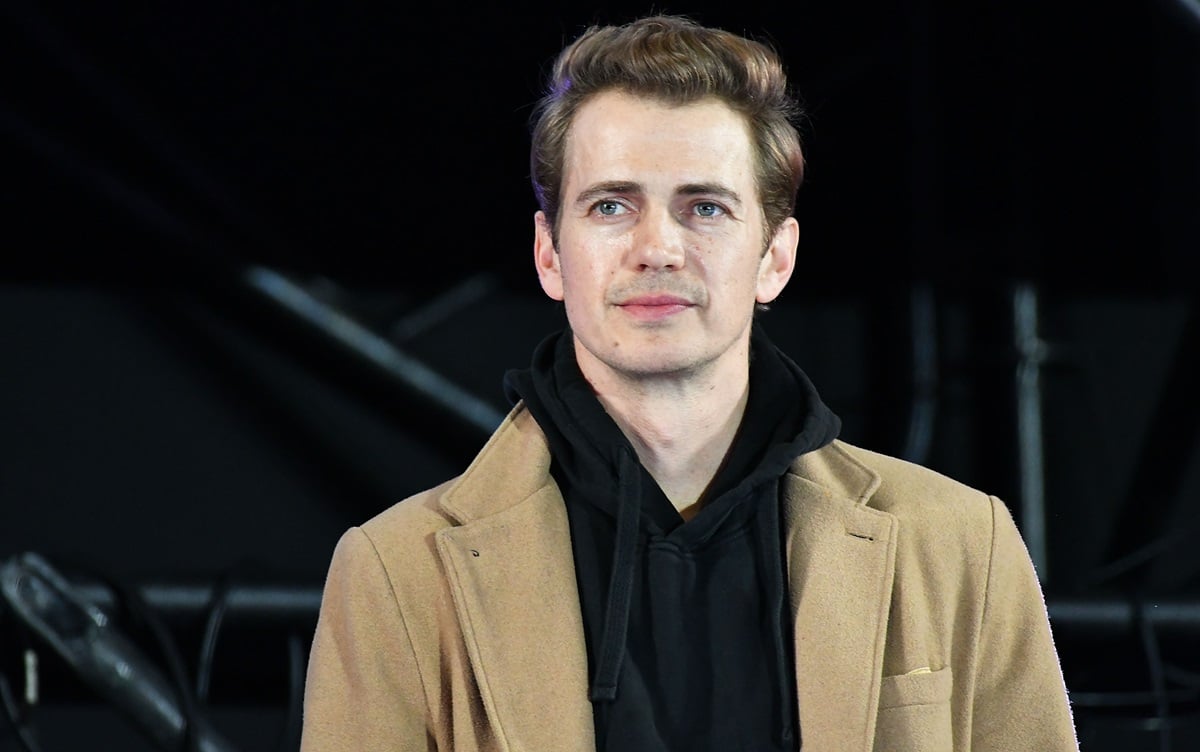
Nicolas Cage Really Connected With Hayden Christensen’s ‘Star Wars’ Performance
The Star Wars prequels cast Hayden Christensen as the tragic character Darth Vader. His performance made a huge fan out of Nicolas Cage, who Christensen would end up working with in another film.
What Nicolas Cage thought of Hayden Christensen’s Darth Vader performance

Cage and Christensen worked together for the first time in the 2014 film Outcast. But Cage was already familiar with Christensen’s work years before their collaboration. In a resurfaced interview with IGN (via Contact Music), Cage confided that he’d been keeping an eye on Christensen since his Star Wars days. The prequels were typically criticized back in the day for some of the acting. But the movie star was more than impressed by what Christensen brought to the table.
“And so, I watched George’s movies, and the work Hayden did with George, and I was very impressed with Hayden’s sort of edgy, dangerous, dark and still soulful performance,” Cage said. “I thought it was superb. And so I really connected with him.”
Cage especially responded to Christensen’s presence in the Star Wars flicks.
“Plus he has a look in his eyes that I respond to,” he said. “Because it almost feels familial. He’s got that sad thing in his eyes that I’ve always been accused of having in my eyes. I thought we would be a good match on camera together – it just seemed like a good fit. And I’m happy to say it worked out. He’s also a lovely man – he’s a very nice man. And I hope to continue our friendship.”
How Hayden Christensen felt about the criticism towards his ‘Star Wars’ performance
The Star Wars prequels have been looked back on more fondly over the years. But when they originally came out, the consensus was that the films were a disappointing follow-up to the original trilogy. Being at the center of the franchise, Christensen found himself caught up in the criticism. He briefly touched on the experience of the franchise and his acting being critiqued so deeply.
“Because Star Wars has had the cultural impact that it has, these characters almost become public domain, where people feel a sense of ownership over them,” Christensen once told Empire (via Comic Book Movie). “The character was criticized, my performance was criticized, and that part sucked. But I also felt like I had some context that perhaps helped a little bit. When Episode I came out, there was a lot of excitement that they were making a new Star Wars, and it was going to be the backstory of Darth Vader.”
But Christensen theorized the movies’ detractors had the wrong expectations when watching the prequels.
“But I had friends that were upset that the character was starting off as this young kid. And I watched the film, and I loved it. It was everything I wanted and more. And I didn’t understand the disconnect between the movie that I saw, and the negativity in some of the reviews. In a way that sort of criticism, I think, comes from a certain failure of their own suspension of disbelief,” he said. “If you’re gonna go sit in a theatre, and the opening scroll starts with, ‘A long time ago, in a galaxy far, far away’, that’s setting the stage that anything is possible. These people don’t need to sound and behave the way that we might expect. And if you’re going to sit down and think that you’re getting something that is of our current zeitgeist, then you’re setting yourself up for something else. You know what I mean?”
Why Nicolas Cage wouldn’t want to do a ‘Star Wars’ movie
Despite being a fan of the films, and sci-fi in general, Cage didn’t really see himself ever doing a Star Wars movie. If only because his passion for the Star Trek franchise was stronger.
“I’m a Trekkie, man. I’m on the Star Trek Enterprise. That’s where I roll,” Cage said according to Variety.
He had particular praise for Chris Pine’s Star Trek movies, who was the lead in a more contemporary take on the franchise.
“I think the movies are outstanding,” Cage added. “I like the political and the sociological [messages]. To me what science fiction is really all about and why it’s such an important genre is that really you can say whatever you want, however you feel. You put it on a different planet, you put it in a different time or in the future, and without people just jumping on you, you can really express your thoughts like Orwell or whomever in the science fiction format. And Star Trek really embraced that.”


